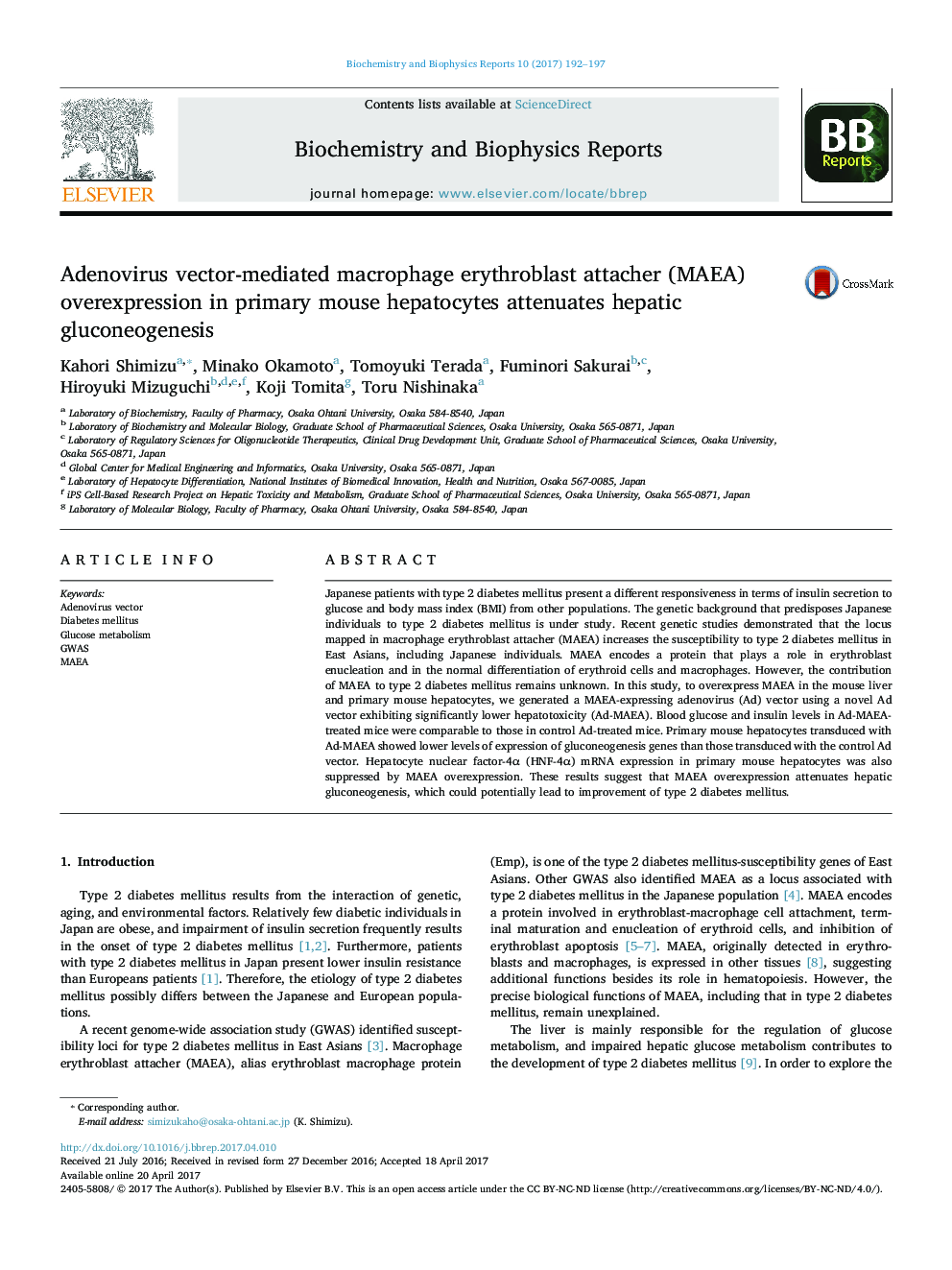| کد مقاله | کد نشریه | سال انتشار | مقاله انگلیسی | نسخه تمام متن |
|---|---|---|---|---|
| 5507011 | 1536898 | 2017 | 6 صفحه PDF | دانلود رایگان |

- MAEA overexpression suppressed gluconeogenesis gene expression in hepatocytes.
- HNF-4α mRNA level in hepatocytes is suppressed by overexpressed MAEA.
- HNF-4α suppression by MAEA may lead to reduced gluconeogenesis gene expression.
- MAEA may be a novel therapeutic target for the treatment of diabetes mellitus.
- Ad vector with lower hepatotoxicity allows gene function analysis in the liver.
Japanese patients with type 2 diabetes mellitus present a different responsiveness in terms of insulin secretion to glucose and body mass index (BMI) from other populations. The genetic background that predisposes Japanese individuals to type 2 diabetes mellitus is under study. Recent genetic studies demonstrated that the locus mapped in macrophage erythroblast attacher (MAEA) increases the susceptibility to type 2 diabetes mellitus in East Asians, including Japanese individuals. MAEA encodes a protein that plays a role in erythroblast enucleation and in the normal differentiation of erythroid cells and macrophages. However, the contribution of MAEA to type 2 diabetes mellitus remains unknown. In this study, to overexpress MAEA in the mouse liver and primary mouse hepatocytes, we generated a MAEA-expressing adenovirus (Ad) vector using a novel Ad vector exhibiting significantly lower hepatotoxicity (Ad-MAEA). Blood glucose and insulin levels in Ad-MAEA-treated mice were comparable to those in control Ad-treated mice. Primary mouse hepatocytes transduced with Ad-MAEA showed lower levels of expression of gluconeogenesis genes than those transduced with the control Ad vector. Hepatocyte nuclear factor-4α (HNF-4α) mRNA expression in primary mouse hepatocytes was also suppressed by MAEA overexpression. These results suggest that MAEA overexpression attenuates hepatic gluconeogenesis, which could potentially lead to improvement of type 2 diabetes mellitus.
Journal: Biochemistry and Biophysics Reports - Volume 10, July 2017, Pages 192-197